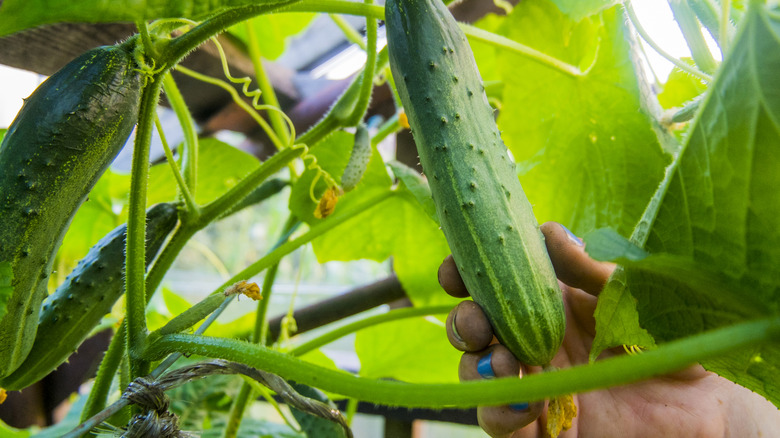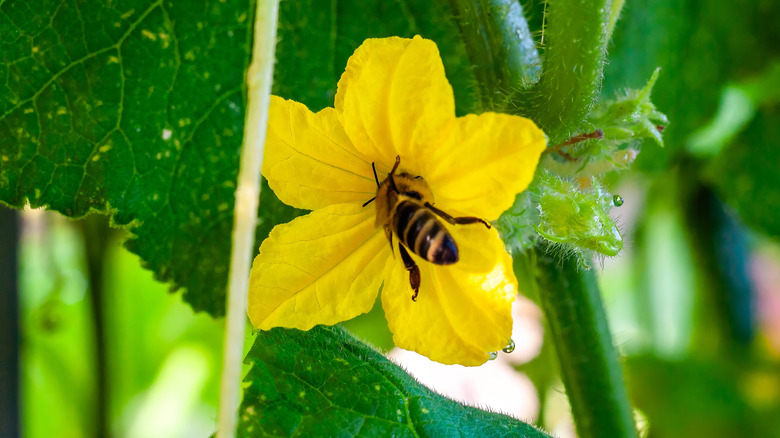Don't Miss Out On Healthy Cucumbers By Overlooking These Garden Mistakes
Who doesn't love a fresh cucumber salad or jar of homemade pickles? Cucumbers (Cucumis sativus) are popular and prolific additions to home gardens, and these bumpy green beauties can be grown all summer long in most hardiness zones. But shriveled vines, misshapen fruit, and low yields could be in your future if you make a few gardening mistakes. Neglecting to maintain consistent soil temperature and moisture around your plants, forgetting to pick your fruit throughout the growing season, and failing to manage pests in a pollinator-friendly way will all work against a healthy harvest.
Cucumbers are sub-tropical plants, which means they like both heat and moisture. Start your seedlings in the sunniest patch of your garden after the last frost. With all that heat, you'll need a consistent watering schedule throughout the growing season to keep the soil moist but not water-logged. You'll know you are watering too often if the leaves start yellowing or wilting. Not enough water will result in weak stalks and small fruit.
Adding mulch around the base of your seedlings will work wonders to maintain consistent soil moisture while also protecting delicate roots from dips in temperature. The best type of mulch for your garden may be as simple as a few layers of newspaper covered with natural material such as straw or leaves. Aim your water at the mulch around the base of each plant, not on cucumber leaves, to avoid diseases like powdery mildew, which will shrink your fruit. When it comes to harvesting, make sure to pick as you grow. The best cukes are plucked on the early side before they grow too large or begin to yellow. Frequently harvesting will also encourage your plant to grow even more fruit.
Manage pests with pollinators in mind
Cucumbers are notorious victims of garden pests. Cucumber beetles, aphids, and spider mites are just some of the destructive bugs attracted to cucumber vines, leaves, and fruit. While it's tempting to reach for a pesticide at the first sign of infestation, don't make the mistake of battling bad bugs with a toxic spray that will also harm the good pollinators you need for a healthy harvest. Instead, try a non-toxic oil and soap spray or neem oil to keep pesky aphids and spider mites off your plants.
Another pollinator-safe strategy for keeping pests at bay is to avoid planting other members of the Cucurbitaceae family, like melons and squash, near your cucumbers. These gourds harbor the very same pests that love munching on your cukes. Instead, consider planting a pollinator garden around your cucumber patch to attract beneficial insects. Flowers such as zinnias, marigolds, and sunflowers will attract bugs that happily chow down on mites and aphids. These flowers will also bring in the bees and butterflies needed to pollinate your cucumber flowers and maximize your healthy fruits.

